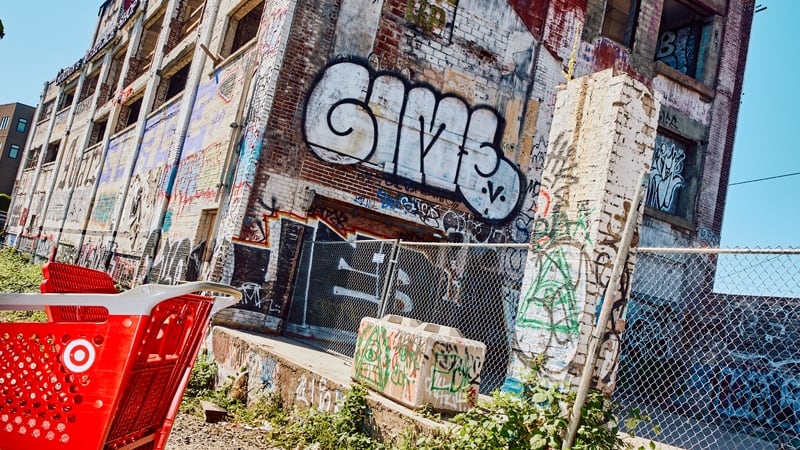Empty buildings are like missing teeth or blank pages in a photo album—the story lies in what isn’t there.
They are untapped potential, forgone wealth, and a narrative arc gone wobbly.
Last month, WW chronicled two vacancies we found especially puzzling: the emptying of a downtown senior living facility called the Taft Home and the demolition of the Quality Pie building, which sat empty for 30 years on the corner of Northwest 23rd Avenue and Northrup Street.
Then we asked readers to nominate the ghost buildings haunting their neighborhoods.
They came forward with dozens.
Doug Decker, a neighborhood historian who writes the Alameda Old House History blog, says it’s natural for people to be curious.
“I think all of our older buildings are time travelers, and they all have stories to tell,” Decker says. “When you see one that’s seen better days, you can’t help wonder what happened.”
In Portland, where residential and commercial real estate prices have marched continuously higher for decades, empty homes and storefronts make no sense, especially as thousands of unsheltered citizens bake in the summer heat.
It’s true that boarded-up storefronts became a common sight during pandemic disruptions. But Portland still has one of the lowest residential rental vacancy rates in the country. Home prices have risen faster here than in all but five of the nation’s 40 biggest cities over the past two decades. And even with the current glut of office space, vacancy rates show we’re still better off than many cities.
That’s why properties left empty over the long term are a mystery.
That’s especially true if the empty building is owned by a nonprofit that only exists to put roofs over people’s heads, as is the case for one of the properties you are about to encounter, or if it’s located in a trendy part of town where retail is always at a premium, as is the case with another.
As we checked around, we found numerous explanations, legal disputes, family dysfunction, incompetence, inertia—and perhaps the most galling factor: an uncaring bureaucracy.
Rob Brewster, whose Seattle-based Interurban Development rehabs old buildings around the Northwest—Pine Street Market and Under Armour’s West Coast headquarters are two Portland examples—owns one of the most visible ghost buildings, the former Gordon’s Fireplace shop at Northeast 33rd Avenue and Broadway.
Brewster is beside himself with fury over the amount of time it’s take his company to get city permits to convert Gordon’s into a floor of retail and two of housing.
“Portland’s by far the worst city we do business in terms of permitting,” Brewster says. “We don’t have a housing emergency here, we have a political crisis.”
Others are more hopeful about the lonely spaces that dot the city.
“You find them in every neighborhood,” Decker says. “You look at them and think, ‘If they stood that long, maybe they still have a future.”
Gordon’s Fireplace Shop Is Covered in Graffiti and Tangled in Red Tape
Once a Portland Institution, Poor Richard’s Now Stands Empty in Hollywood
A Southeast Portland Church Is Left Behind as Mormons Leave Oregon
A Block From the Bagdad Theater, a Diner Is Frozen in a Court Battle
Chemical Residue From a Longtime Dry Cleaner Impedes Redevelopment of the Property
Only Half of a Laurelhurst Assisted Living Campus Is Being Used
A Housing Nonprofit Collects Nuisance Complaints at Its Empty House in East Portland
What Once Was Al Forno Ferruzza Is Decaying, Thanks to a Busted Pipe
When a Burger King Closes In Portland, It’s Difficult to Replace
Merlin Radke Donated His Auto Parts Shop to Warner Pacific University. Now a Vlogger Owns It.
An Often-Empty Tong in Portland’s Chinatown Now Hosts Lightsaber Nights
A Newspaper’s Reporting Preserved a Pledge Not to Raze a Slabtown Grocery. It’s Still Empty.
